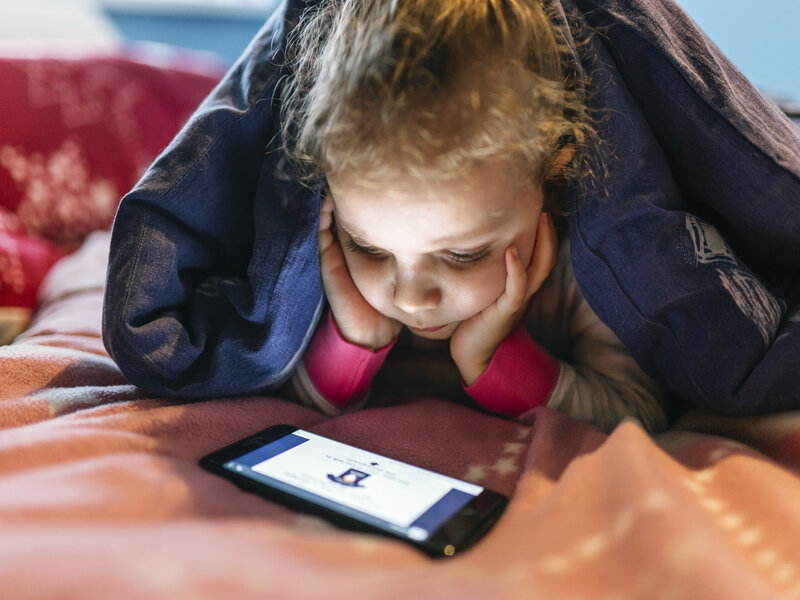Parents 2.0: How Much Can Technology Influence the Psycho-Attitudinal Growth of Children?
It’s a classic summer Sunday morning. To relax, you decide to go and get
some “fresh” air in the central park of your city. Looking around, you
witness a peculiar scene: a father and a mother sitting on the bench, each
with their smartphone in their hands and their child standing next to them
bouncing between one parent and another with their hands raised in search
of attention that the parents won’t give him or, simply, with the desire to
play with his own father or mother who does not satisfy him.
A hot topic of this historical period is the concern about the harmful
effects that the new technological tools (tablets, laptops, smartphones,
etc.) can cause to children and young people of the tech generation. That
sound concern may distract the focus also to the negative effects that
technology is causing in the relationship between parents and their children; in particular, we’re talking
about the alternate attention that some parents divide between their child
and their cell phone.
On this respect,
Vanity Fair
reports the story of an American child who was asked, for a class
assignment, to write about the invention he hates most, and he showed his
disapproval of cell phones with this motivation: “my parents spend all day
on there.” The same article speaks of about interesting study conducted byDigital Awareness UK and the Headmasters and Headmistresses Conference, from which it turned
out that, one in three children, openly requested their
parents to limit their smartphone use and to dedicate more time to them.
Is it likely that this, let’s call it, “partial attention” on the parents’
part can influence the education and psycho-aptitude growth of their
children? According to Dr. Brandon McDaniel, yes, unfortunately, it is
possible!
Dr. McDaniel, as reported by the Italian website nostrofiglio.it,
conducted a survey on a sample of 170 sets of parents to
test whether the excessive use of the technological tools parents were the
basis of childhood disorders of behavior, such as, for example,
hyperactivity, restlessness, attention disorders, etc.
In detail, the US doctor asked parents questions about their daily habits,
inquiring specifically how and for how long they used their device
during conversations or during activities with their child. Almost half of
the respondents admitted that they used to watch their smartphones at least
three times a day while doing something with their children.
This study, published in the journal
Child Development,
brought to light the fact that the lack of attention, even for a few
moments, could be perceived by our children in a negative way and could be
the beginning of a behavioral disorder.
Another study also carried out in the USA confirms that findings. This time
the parents were not the inquired people, but 700 adolescents between 13 and 17 years old about their
relationship with their parents. 51% of the kids said that
their mom and dad are often distracted by the smartphone
even while talking to them. The alarming element that has led to this study
is that while adolescents are more conscious and responsible in recognizing
their dependence on the phone through notifications, this awareness is less
in the “adults” who seem to not recognize their dependence on the mobile
device who, indeed, believe they are using them in the right amount.
It is easy today, therefore, to be victims of what is now considered the
21st century disease, the so-called Nomophobia,
better known as the disconnection syndrome that can make both adults and
children sick.
The age of new technologies is nothing more than a challenge and test for
parents 2.0 who find themselves spending their energy not only in imparting
a healthy, traditional education to their children, but also constantly
reminding themselves to instill in their children an adequate digital
education. To do this, the parent 2.0. carries a great
responsibility, that of being a
good example in everyday life, that is also in the personal use of the
networks and new technologies
. We must therefore start with ourselves and become aware of how much we
are subjected to the object that we carry in our pockets or in our bags.
Let us commit ourselves to “disconnect” and dedicate the necessary
attention and time to our children. Let’s try to make our children relive
the beauty of the light-heartedness of the past years not characterized by
discussions or communications in the family via chat, but gathered all
around a table or the friendship made through a relationship with the
other, physical and visual, rather than virtual, not denying the positive
aspects that technology innovation has brought to our lives. Let’s try to
plant in our whole family, the seed of discernment that helps us to
distinguish what is really useful or not in our lives and that our
happiness and our personal satisfaction come from the real world
rather than the digital one.















